The school is on the lava field south of Kona International Airport, at Keahole Point. According to Wikipedia, lava flow created this land in 1803; it is currently the Big Island's western-most point.
If you've driven Highway 11 on the Kona side in the last half-dozen years, you have surely noticed the Hawai'i Gateway Energy Center:
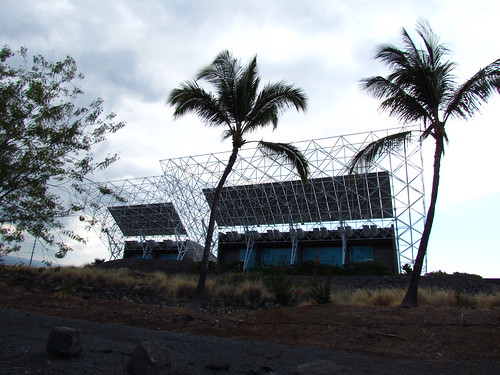
Over the years, the world's most remote island chain has tried different ways to generate electricity without petroleum.
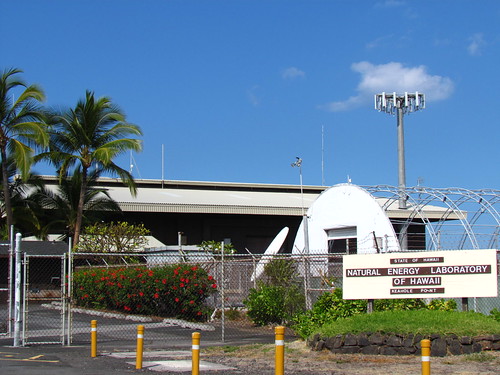
One of those ways, called Ocean Thermal Energy Conversion (OTEC)--which exploits the consistent 40 degree temperature differential between the cold deepwater just of the island's shores and the warm surface water in a Rankine cycle--led to the creation of a 2000' deepwater pipe to bring cold seawater up to the surface. While OTEC has not been a huge success for energy production, a number of small businesses have to found a way to profit from the ready supply of cold, nutrient-rich seawater. Abalone, clams, "Maine lobster", tropical fish are all cultured here for commercial production and take pressure of natural ecologies. There is new energy-related interest in the different types of algaes and seaworms that occasionally come up through the pipe as well.
Driving around out here it looks a lot like any other sort of light industrial park. But in the middle of it is Hawaii's first start-up charter school, which opened in August 2000. I like the mission statement from the webpage: No Child Left Indoors: Environmental Education in the Real World. And indeed, the school is all outdoors.
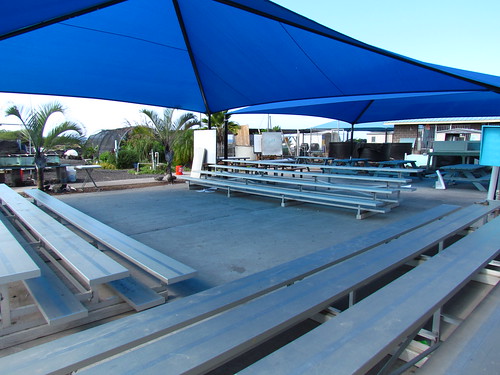
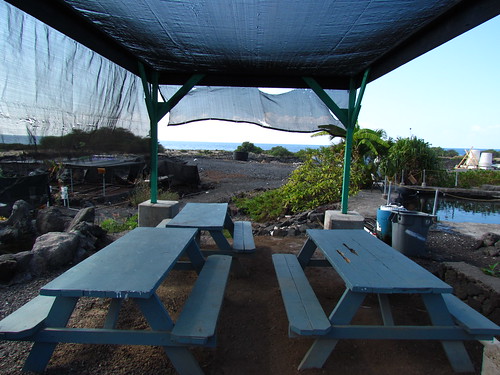
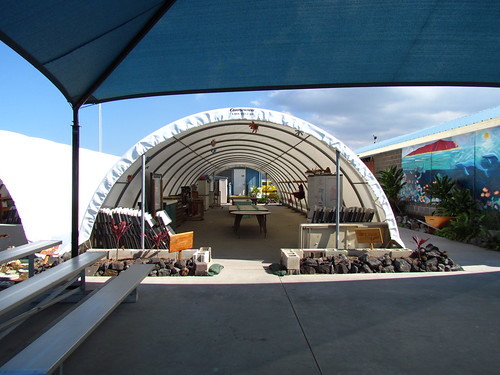
Our tour guide is Leesa.
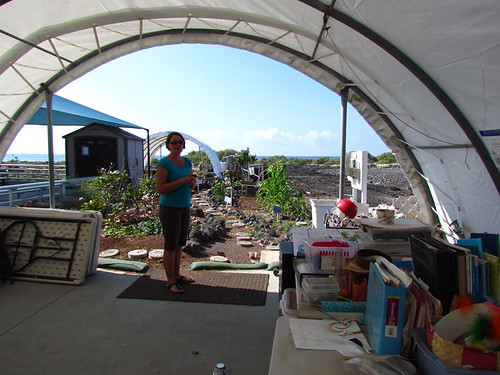
"WHEAPCS is a nationally recognized laboratory school serving as a 'magnet' for science-focused, outdoor, hands-on education. It features large-scale, long-term, projects that meet or exceed performance demands of traditional 'standards based' education. The program works best for students seeking to challenge themselves in a self-directed, science-focused learning environment. The curriculum is writing intensive and college preparatory, but 'Can-Do' attitude almost always outshines innate ability. While WHEA's pedagogy has been developed in the context of STEM (science, technology, engineering and mathematics) education, it is actually designed to be transferable to nearly all academic subjects."
I was particularly intrigued by the many different horticulture and agriculture-related projects students can choose to work on. The whole school looked like a giant science laboratory. I snapped a few pictures as we zipped through.
Run some of that cold, deep-ocean water through those black tubes. Moisture condenses out of the air to create fresh water!
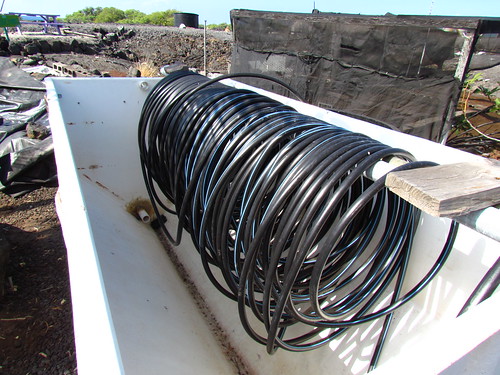
The island is only 300,000 years old. Agricultural soils need much longer than that to develop. If you want to grow food here, you have to import soil, or make your own. Free nutrients are absorbed quickly in warm, sunny climates. As a result, tropical soils worldwide are relatively thin, just like tropical waters are relatively nutrient-poor. You've got to work with what you've got and make the most of it. I saw dozens of garden beds running different experiments, at various states of development.
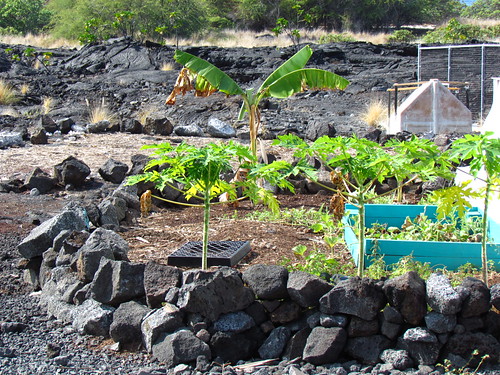
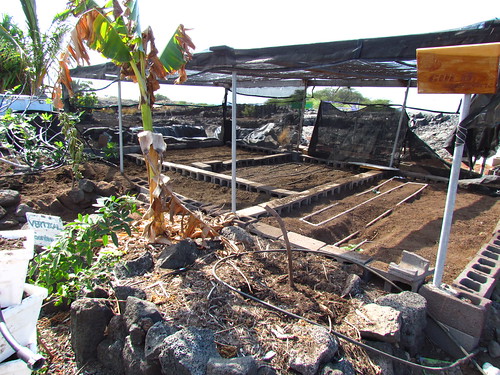
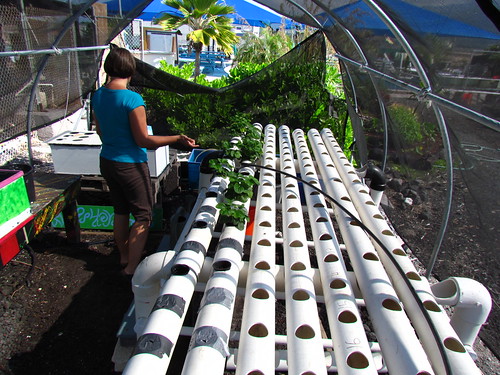
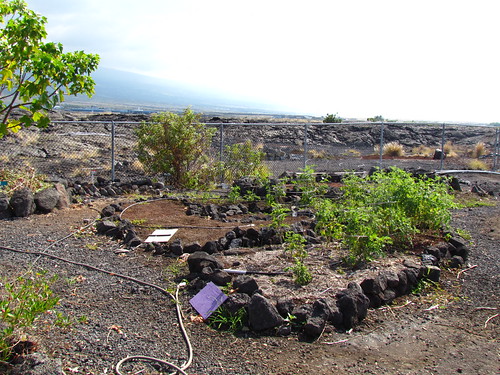
And it was not just plants... While we were there a student had come in over winter break to clean the shark tank.
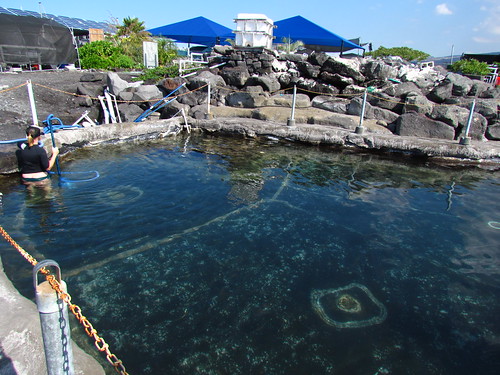
Sharks!
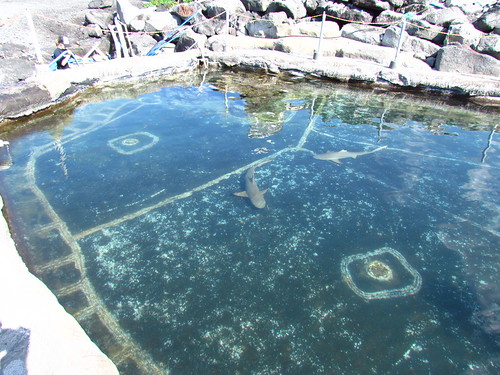
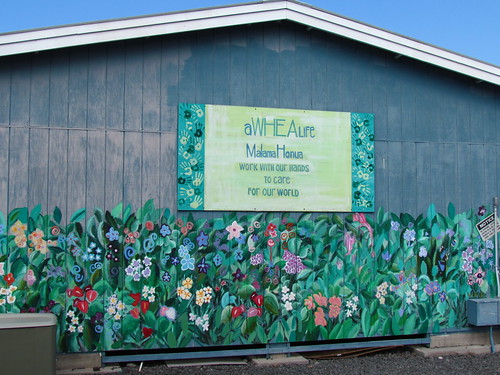
This place seems like a great opportunity for students who fail to thrive in the traditional classroom setting with its constant, dreary testing regime. As a former young person myself, I know I did reasonably well in that environment, but as a middle-aged graduate student today (almost done--just six months to go), I find classroom learning nearly unendurable. I mean, I'm doing well, but this sort of hands-on, project-based learning approach would be a better fit for me at this point in my life. Other people I'm sure would go in the opposite direction. I think we can agree, one size does not fit all.
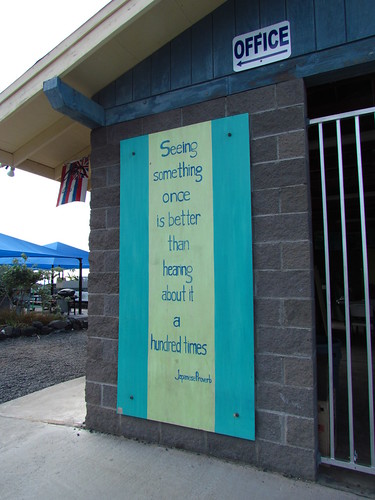

No comments:
Post a Comment